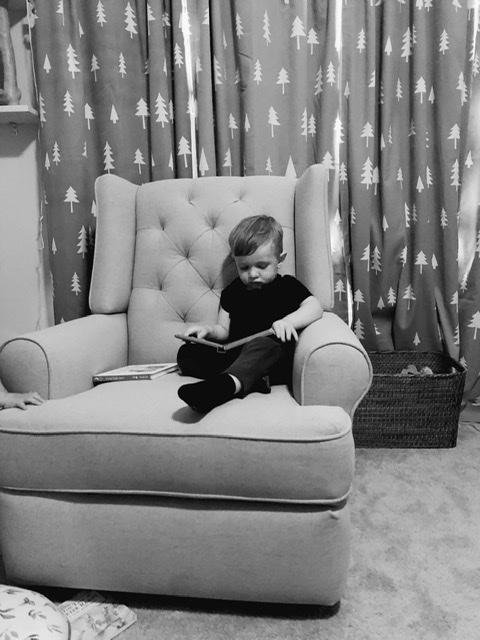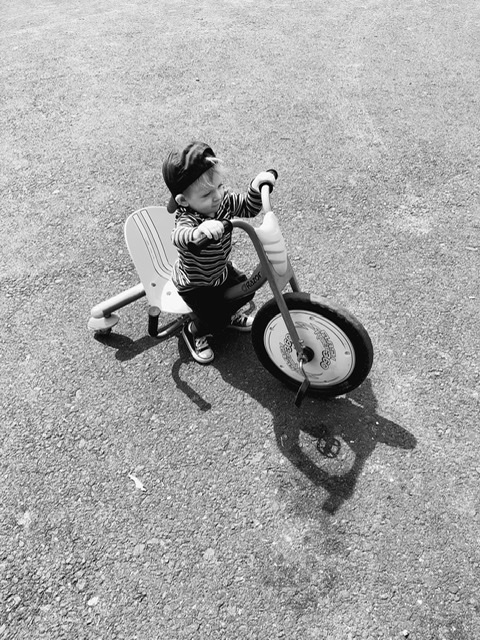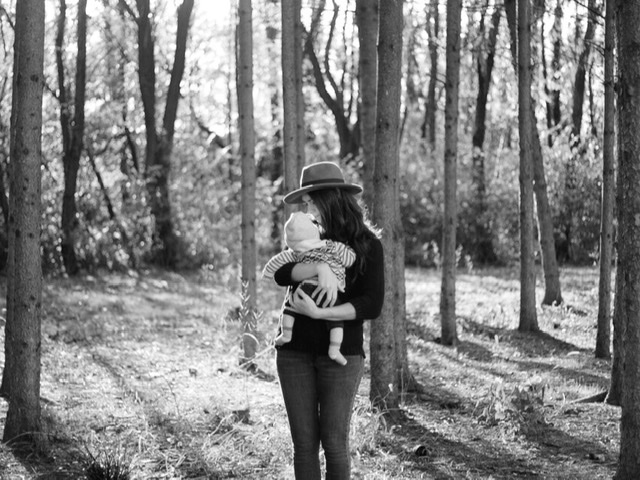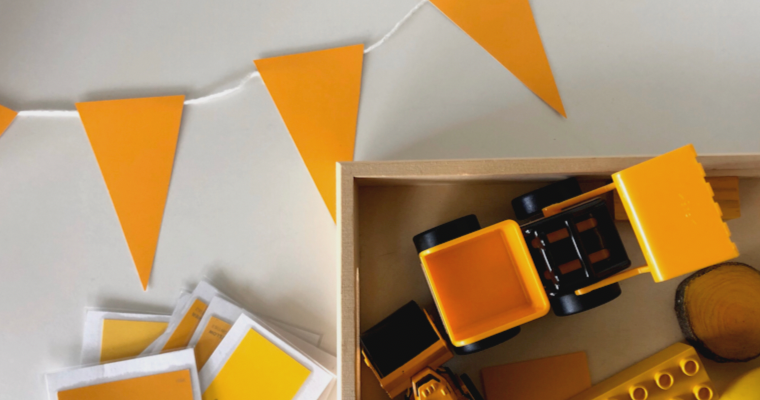
I began this journey with thoughts on mental growth that were somewhat synonymous with a notion of “book smarts”. I assumed the best thing I could do for Graham was teach him the alphabet and numbers and read to him everyday. My vision for his mental growth was clouded by all that a child “should” know. But I’ve come to believe that while there is nothing wrong with teaching the alphabet or other learning fundamentals, I was sometimes pursuing those clear milestones over embracing the intellectual development my child was naturally inclined towards. And I discovered that it was possible that my understanding of a child’s intellectual capacity was far too small and limiting.
Mental growth or cognitive development is actually largely about teaching the how. It’s about teaching the tools and processes for thinking, rather than doing the thinking and demanding memorization. It’s about offering time and space to practice thinking by actually thinking. I’ve found that a large part of nurturing mental growth begins by expecting that children are capable of a great deal more than we often give them credit for.
Humans seem to be hardwired with an intrigue and an appetite for novelty. We long for and pursue new experiences, new knowledge, new beauty. And because at the beginning of life essentially everything is new, children are kind of propelled into learning somewhat effortlessly. With or without careful attention, children are bound to be learning something.
Though this can seem daunting, the quickness and impressionability of a child’s mind offers us a beautiful opportunity to serve them well in this rapid learning window of youth. With intention, we can lay before them what Charlotte Mason would refer to as “a feast for their minds.” We can recognize the appetite that children possess for learning and supply them with nourishment to satisfy that hunger. We do this by introducing them to the very best life has to offer in the realms of art, music, literature, and a plethora of other subjects that stimulate the mind.
Another concept that has been useful to me in regards to mental growth is that of “following the child” from Maria Montessori. She presents the idea that teaching of the child and observation of the child must go hand in hand. I want to pay careful attention to engage with Graham about what he wants to know rather than what I think he should know. I’m imperfect at it, because this chapter of parenthood most certainly reawakens my own fondness for playing school when I was a child. It kind of feels like an invitation to revisit that. And then that nostalgia becomes paired with the delight I currently find in creating learning materials, but I’m striving to remember that one of the ways we teach children to be deep, thoughtful individuals is by leaning into where their curiosity takes them as often as possible. So I’m practicing leaning into the interests of Graham and not always forcing my own agenda.
He’s currently wildly passionate about tractors and trucks (in typical two year old boy fashion). They’re not exactly something I would describe myself as passionate about. I might be guilty of occasionally trying to spark some interest in the direction of space or dinosaurs instead, but right now we spend a lot of time reading books about construction vehicles and what they do. We watch tractor documentaries. We’re building a vocabulary and we’re growing our knowledge. And I’m learning that the point is not really about the tractors at all. He’s learning how to collect information. He’s learning how to learn. Even as a not quite two year old, I find it so important to ask him questions about what he thinks and what he wants to know and let him know that I genuinely care about the answer, even if he can’t always articulate it just yet.
I’ve observed the delight children find in learning during the early years. And then I’ve watched that delight fade around school age and become replaced with an obligatory learning spirit. They do it because they have to. I imagine it’s because the reward feels so small and unsatisfying. When we get to learn about things that fascinate us, the reward of that learning is so much greater and motivating. It builds momentum to continue learning, to keep going and growing.
I have a desperate desire to cultivate a passion for learning in Graham and I would be devastated if it were extinguished by a philosophy of education as strictly memorization or by the idea that there is always one right answer or one right way. I think it probably goes without saying that we learn best in an environment where we care. An environment where we care not just about whether we can prove what we’ve learned or not learned, but where we actually care about the content and the way that it shapes us and the connections that are formed.
An important part of mental development and an incredibly underrated skillset in my opinion is that of problem solving and adaptability. As Caroline Bellous insightfully pointed out, “The jobs that our preschoolers will do probably don’t exist yet, our priority is to teach them the skills to adapt and inquire and question and cooperate—life skills.“
Our children don’t need to be taught the answers, they need to be taught how to find the answers. We’re likely teaching them many answers to questions that will become irrelevant in their lifetime. Problem solving cultivates resilience and forward movement in children. It is powerful in its ability to transform failure into simply a part of the process that leads to eventual success.
Intellect and mental strength are obviously prized qualities in our current culture. The mind can be a tool that serves people well in terms of success, for certain. But I also want to careful to emphasize the importance of recognizing that the mind is so much more than just a tool to be used for climbing the ladder of success.
The mind is a gift. Truly. It’s a gift in life to have an imagination. It’s a gift to discover and experience. It’s a gift to communicate well and to feel understood. It’s a gift to be capable of wonder and questions. It’s a gift to journey in life with a sense of purpose and meaning. And all of these things come from a place of learning how to use the mind well.
Mental Growth | In Practice
- Language Development—Language is about communicating. It’s about understanding and being understood. We’ve found it important to us to speak to Graham as a person and rather than speaking down to him. We offer him words for the tangible and the abstract, such as emotions he might be experiencing. But we’ve also paired that with a mirroring of what Graham was saying or expressing since he was a baby.
- Memory
- Curiosity
- Problem Solving—I’m working on this one. But I’m striving to involve my child in the process of problem solving more than just doing things for him when he asks for help. I’ve been so proud of him for asking for help when he needs it and feels frustrated that I just want to reward that with the help requested. But as he’s getting older I want to teach him the steps to figure out solutions together and build his confidence in his ability to do so.
- Order/Routine—For young children, knowing what’s coming next provides a sense of security. And it frees up mental space to play and learn.
- Play
- Refinement of the Senses
- Music
- Storytelling/Reading—It helps that I also love to read and children’s books are some of my favorite reading material. But reading contributes to growth in so many areas. It teaches language, it teaches new concepts and vocabulary, it teaches empathy, it teaches imagination.
- Math Patterns
- Abstract Thinking
- Imagination
Mental Growth | In Reflection
- When do I feel mentally alive or restored?
- What do I wish I knew more about?
- What does my child want to know more about?
- What are some ways I can model the exercising of our brains?
- Are we offering our minds nourishing material? Are we offering our minds restorative rest?
- What do I hope or imagine for my child in terms of long term mental growth? How do we get there? What needs to happen in our day to day? What are some ideal goals for this year? Am I modeling this well?




